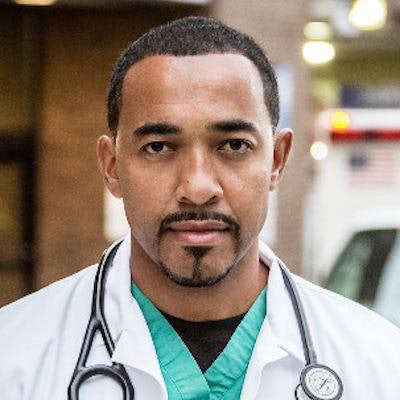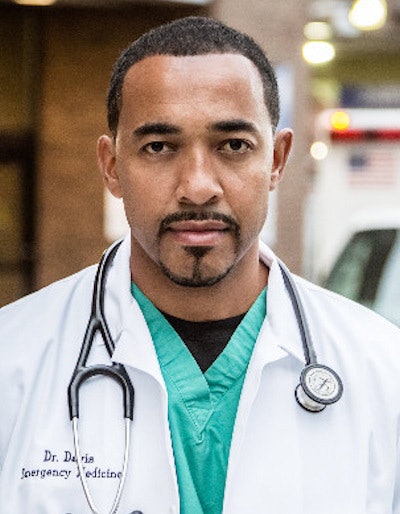
While the COVID-19 pandemic seems to be fading, it has highlighted health disparities that persist. Health professionals, including radiologists, need to be more proactive in addressing this issue, according to Dr. Sampson Davis, who spoke at the Society of Nuclear Medicine and Molecular Imaging 2021 virtual annual meeting.
 Dr. Sampson Davis.
Dr. Sampson Davis.Davis is an emergency medicine physician at several New Jersey hospitals and is a New York Times best-selling author. In his talk at SNMMI 2021, he opened up about his youth, going to medical school, and dealing with the pandemic. He also called medical professionals to action to fight against racism, gender inequality, and social determinants of health.
"As we move forward and start to reintegrate into civilization, we have to be mindful and we have to make improvements in tackling COVID, but also tackling racism and gender inequality," Davis said. "We also have to address the fact that many of us are suffering from depression and anxiety from COVID."
"Racism is a very uncomfortable conversation, but we have to get comfortable with being uncomfortable," he added.
Davis grew up in Newark, NJ, where he and his family experienced poverty. Access to education, food, and transportation was limited. However, he and a couple close friends made a pact while in high school to become doctors.
Davis received his bachelor's degree from Seton Hall University and graduated with honors. He then pursued his medical degree at Robert Wood Johnson Medical School and completed his residency in emergency medicine at Newark Beth Israel Medical Center, the same hospital where he was born.
He also co-authored books such as the New York Times bestseller, The Pact and We Beat the Street. Davis also co-created the nonprofit organization Three Doctors Foundation, which offers a series of free public programs to communities.
During the COVID-19 pandemic, Davis said he and his team initially had "no clue" how to handle the coronavirus, but he noted that "history repeats itself," citing the last pandemic the U.S. faced with the 1918 influenza crisis.
"I always felt that with strength, resilience, hope, and community, we would get past this," he said. "I never thought that we as a society lost hope."
However, racial disparities have been seen during the pandemic. While decreased use of screening exams was seen all around, multiple studies have suggested that inequities have been exacerbated by the pandemic, such as delays in diagnosis and inability to afford care.
Davis also pointed out vaccine hesitancy among Black and LatinX communities as a detriment, citing the Tuskegee syphilis study. He said to bridge these gaps and improve trust in vaccines in these communities, medical professionals need to continue to push themselves to step out and be part of communities.
"That requires all hands on deck," Davis said. "We have to do better."





















